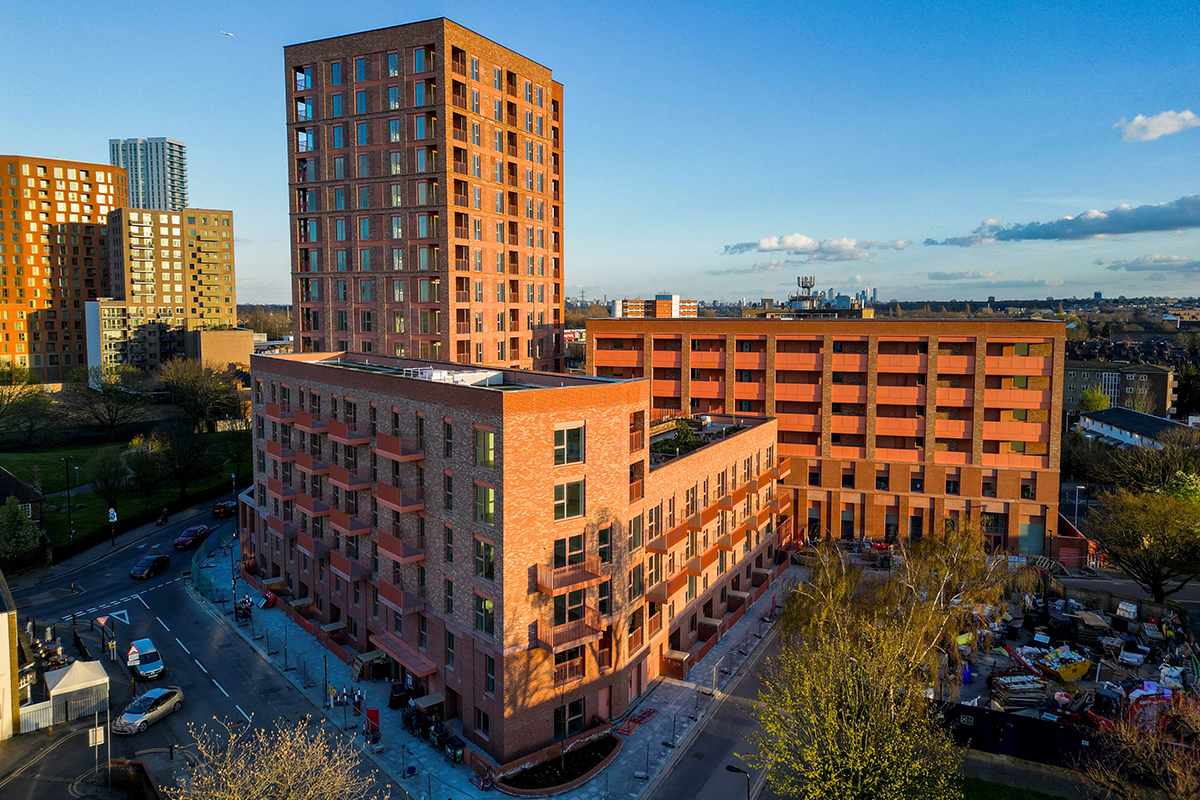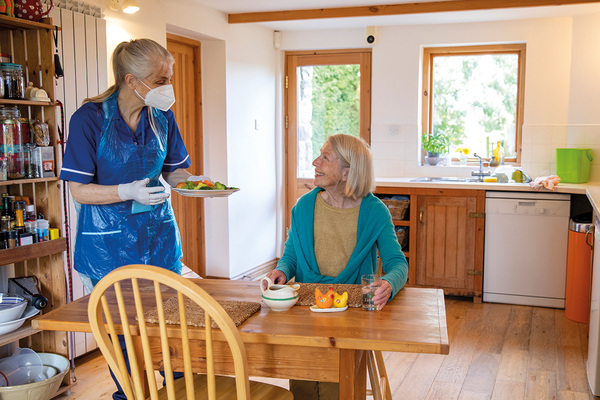You are viewing 1 of your 1 free articles
The private housing sector will never deliver for disabled people without government intervention
Disabled people are disproportionately affected by the housing crisis. They need bold action, writes Mikey Erhardt, policy and campaigns officer at Disability Rights UK
Growth has been the mantra of this new Labour government. But for all the talk of change, Labour’s housing policy seems to take much from the previous Conservative government. It fails to be bold and legislate for a more equitable society for disabled people, all while prioritising the demands of big corporate developers.
No matter who you are, where you come from or your background, we all deserve a warm, safe, affordable home. Housing the 16 million disabled people in the UK is only getting harder, with one in five disabled people in social housing experiencing an unmet need.
This crisis can’t be fixed by tweaking around the edges. Ultimately, developers and home builders have been involved with the previous government in creating this mess. The Equality and Human Rights Commission found that 68% of local authorities report developers do not always comply with accessibility requirements for the homes they build, but only 3% have acted against a developer on accessibility grounds.
Multiple reports, including evidence given to the Levelling Up, Housing and Communities Committee in parliament, show developers continue to abuse the viability assessment mechanism to avoid meeting the already-low targets for accessible housing provision.
“If the government wants to rely on the private sector to build the homes that our communities need, they must adequately resource local authorities to enable them to challenge viability assessments”
Even home builders often struggle to offer a reason why we aren’t building accessible homes that isn’t simply a desire for higher profit margins. Sam Stafford, planning director at the Home Builders Federation, told the select committee that the cost of building accessible homes and the lower profit margins held developers back.
“M4(3) [of the Building Regulations] is very expensive to make wheelchair-accessible homes beyond detached or bungalow homes… Bungalows rub up against the drive for density, so we have conflicting policy objectives already,” he said.
But there are solutions out there. As Mariella Hill, policy and campaigns officer at Inclusion London, the charity, said: “If the government wants to rely on the private sector to build the homes that our communities need, they must adequately resource local authorities to enable them to challenge viability assessments, where needed, and ensure they are not used to prevent or reduce the number of accessible and adaptable new-build housing.”
The government must also set national standards for new homes. Two years ago, on 29 July 2022, the Conservative government committed to raising accessibility standards for new-build homes. However, they never followed through with this commitment.
Labour’s MPs agree. Before the election, the Levelling Up, Housing and Communities Committee recommended that the government should bring a consultation forward immediately to introduce minimum standards for new builds.
But it’s not just homebuilding that’s holding us back. To be blunt, it doesn’t matter how many new homes we build if disabled people can’t afford to live in them. Increasing the supply of social homes is vital, but that can’t be the only way Labour attempts to change the housing system.
Estimates from the Tony Blair Institute for Global Change suggest that building 300,000 homes a year would only result in a 10% reduction in house prices over 20 years. This would take us back to house prices before the pandemic – not exactly a boon for the 50% of private renters who have found it difficult to keep up with bills and credit commitments in the past few months.
“The current affordability crisis is making it impossible for disabled people to afford to live safely in our communities”
Research by the University of Bristol found that disabled people were significantly more likely to be homeless because of our income levels, and the current affordability crisis is making it impossible for disabled people to afford to live safely in our communities.
As a spokesperson for the London Renters Union told me: “Access to a secure and affordable home has become a privilege, when it should be the bare minimum. Disabled people are disproportionately hit by our rigged renting system, with many forced to hand the majority of their incomes over to their landlords.”
Analysis by the Trades Union Congress has found that non-disabled workers earn 17.2% more than disabled workers. Scope, the charity, estimates that disabled households with at least one disabled person face extra costs of £975 per month.
Even if we could build high-quality, affordable homes overnight, Labour would still need to make other changes to the dangerous mess in which we find ourselves.
So it is very surprising to see Labour completely ignore demands from across the sector for measures to help renters, such as rent controls. Disabled people are demanding bolder action. The DPO Forum England, which consists of more than 20 disabled people’s organisations, wrote to Sir Keir Starmer, the prime minister, this week, saying: “We also urge the government to bring in rent controls […] so that we can live securely and without fear in our own homes.”
Measures like these have repeatedly been shown to work and, when implemented thoughtfully, have little to no impact on housing supply. Most recently, research from Catalonia found that regulation reduced average rents by about 4%-6%, with no evidence of a reduction in the supply of rental units. Imagine the difference it could make to millions of disabled people to have more money in our pockets at the end of the month for the first time in years.
“We need to bring back rent controls in this country and see a long-term investment in public homes so that people can start building better lives for themselves,” the London Renters Union told me – and they’re right.
Disabled people across the country deserve safe, affordable homes, and we hope Labour has the boldness and courage to forge a new path for the housing system, rather than falling into the same routines of the previous government.
Mikey Erhardt, policy and campaigns officer, Disability Rights UK
Sign up for our care and support bulletin
Already have an account? Click here to manage your newsletters













